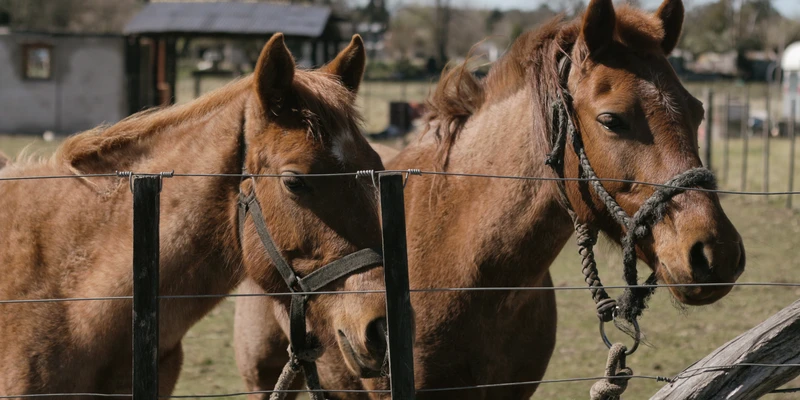Healing can come in different ways. One way that many people struggling with mental health issues and addiction can recover is through equine therapy. This approach harnesses the therapeutic connection between humans and horses for better emotional health. 
What Are the Benefits of Equine-Assisted Therapy?
Equine-assisted therapy offers several benefits for a person’s overall health and well-being. Some of the most common benefits of this type of therapeutic approach include:
Emotional Regulation
One of the ways this therapy can benefit a person is the emotional regulation that comes with working with the horses. Engaging in routine work with these animals can calm your nervous system and regulate your emotions. For instance, grooming the horse can be like a mindfulness practice where you become more aware of your actions.
Better Self-Awareness
Horses usually mirror what humans feel or do; seeing this reflected in the horses can cultivate better self-awareness. You must be aware of the immediate emotional feedback from the horses. So, if the horse is acting out of character, this can be a way to be more aware of your feelings and body language.
Companionship
Companionship is another benefit of working with horses. These animals make ideal therapeutic partners since they do not judge or criticise. Cultivating a relationship with this animal can benefit those struggling with self-esteem issues. Caring for and spending time with a horse also creates a sense of purpose and responsibility, where you can rediscover a sense of self-worth.
Increased Empathy
Horse therapy can help increase human empathy because horses are highly sensitive creatures. When you work with horses, you learn how to read non-verbal cues. It will require you to slow down and carefully observe the animal’s responses. If it takes time to warm up to the horse, you must also practice patience and understanding to gain the animal’s trust.
Better Communication Skills
Horses can be perceptive animals that react to you based on your energy and movements. This means you must clearly and confidently express yourself without relying on speech. Working with these animals can build your confidence in non-verbal communication and help you develop active listening skills. Both are highly beneficial for those struggling with social disconnection or isolation.

How Does Equine Therapy Work?
During equine therapy, therapists and other equine specialists will facilitate different activities involving horses. It involves structured interactions that are very unlike traditional therapy. It’s an experiential approach that engages the body and mind.
Different activities and processes are included in equine-assisted therapy:
- Initial Assessment: During the initial assessment, you’ll be examined on your needs and therapy goals. You might need or seek equine therapy for many reasons, and a therapist can help assess these to create a programme that works for your concerns.
- Non-Riding Activities: Not all equine-assisted therapy approaches involve riding horses. There are plenty of non-riding activities that involve groundwork. Common groundwork activities include grooming, observing the horse’s behaviour, and leading exercises.
- Mounted Sessions: Occasionally, horseback riding becomes a part of this approach. It’s an activity that requires a lot of trust and focus, which can help with mental clarity and physical coordination.
- Observation and Reflection: After conducting the therapy, reflecting on the experience is essential. Asking what emotions surfaced during the session and how the horse responded to different emotions can help your personal growth and healing journey.
Common Uses of Equine Therapy
In traditional therapy sessions, clients are often forced to discuss their experiences with a therapist. While traditional therapy is effective, it can make clients feel pressured to talk through their problems.
Sometimes, taking a step back and taking a different approach can benefit certain mental health conditions. This is where equine therapy comes in. Here are some common uses of this approach.

Equine Therapy for Addiction
Addiction recovery requires someone to be more in tune with their emotions. It’s a condition that can take over someone’s life, and it’s important to find a recovery approach that encourages someone to be more emotionally aware.
Whenever someone struggles with addiction, they’re most likely facing feelings of guilt and shame. Working with horses can provide non-judgemental companionship, and those struggling with these negative feelings can help restore a person’s self-worth.
This approach also encourages responsibility, especially when caring for the horse. You have to be mindful and careful when doing everything. When this routine care happens, it can help those struggling with addiction develop healthy habits.
Equine Therapy for Anxiety
Another use for equine therapy is to help with anxiety. This disorder can manifest as excessive worry; sometimes, a traditional approach isn’t enough to quiet anxious thoughts. Horses can complement traditional approaches to treating anxiety by helping to reduce stress.
Working with the horses can help improve your mindfulness rather than constantly worrying. The repetitive motions of grooming the horse or cleaning its stall require focused attention. These naturally draw you into the present moment, shifting your awareness away from anxieties about the past or future.
Equine-assisted therapy can also improve someone’s confidence. This is very helpful for those who struggle with social anxiety, where they have difficulty trusting themselves and others and often feel judged or inadequate in social situations.
Equine Therapy for Veterans
Veterans may face different mental health issues that require a safe space for emotional processing. Many veterans may struggle to talk about their trauma and experiences, and taking care of horses and working with these animals can provide emotional healing without words.
Veterans may also struggle with hypervigilance, but the horse’s presence can help them calm down. This regulated nervous system becomes essential when opening up about their struggles, creating a safer and more grounded space for vulnerable conversations.
The trust built during equine therapy can also make veterans more confident in their relationships. When you interact with horses, you’ll have to constantly think about making space for another being’s needs and emotional state. This can help create better understanding and empathy for others.
Equine Therapy for Depression
Those struggling with depression constantly feel tired and unmotivated. Without companionship, struggling with depression can feel more isolating. Horses offer this gentle companionship that those with depression may need.
In certain cases, simply being outside can make it easier to deal with depression. Inactivity often accompanies this condition, and even the simplest of tasks can be difficult to accomplish. Through equine-assisted activities, you can find an outlet for your emotions and even build a better sense of accomplishment.
Being in the presence of a horse can also increase dopamine and serotonin levels. These are the chemicals in the brain that are responsible for emotional regulation. When someone is depressed, they have an imbalance of these chemicals in their brain. An equine-assisted programme can help boost these brain chemicals for better mental health.
Equine Therapy for PTSD
Post-traumatic stress disorder (PTSD) can make it more difficult to feel safe with other people. This disorder stems from a very stressful and traumatic experience that can leave lasting psychological scars. It can also disrupt someone’s sense of security and trust in the world around them.
When someone engages with horses, it can help create a sense of safety. Being around these animals can promote relaxation and reduce the intensity and frequency of PTSD-related symptoms. This approach also encourages emotional expression without having to talk about the trauma all the time.
Equine therapy can help rebuild a sense of trust and, eventually, help you regain control over your life. It’s a way to approach PTSD without having to confront the traumatic event through verbal recounting directly.
Explore Equine Therapy with Sierra Recovery
Different kinds of mental health issues can be managed with traditional therapies. However, exploring other options can be very useful when traditional therapies aren’t enough. One of the many options available to help with these issues is equine therapy.
At Sierra Recovery, we integrate this approach into our mental health and addiction treatment programmes. Our staff is here to assist you and help ensure that you have the best healing experience.
Contact us today to learn more about this holistic approach and our other offerings. We’re always here to answer your questions and concerns.







